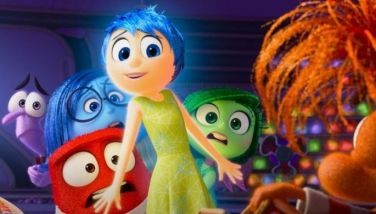Still at it

August 26, 2001 | 12:00am
 My own acquaintance with the Bee Gees has mostly been movie music: from Melody Fair, to Saturday Night Fever, and Sgt. Pepper’s Lonely Hearts Club Band. Of course, not without the occasional hit single thrown in, the effect of which was opposite that of a monkey wrench in our growing up years.
My own acquaintance with the Bee Gees has mostly been movie music: from Melody Fair, to Saturday Night Fever, and Sgt. Pepper’s Lonely Hearts Club Band. Of course, not without the occasional hit single thrown in, the effect of which was opposite that of a monkey wrench in our growing up years.
Melody Fair, in particular, was one soundtrack album whose songs were practically taken to heart and mind in our time, though we were perhaps too young to watch the movie showing in far off Escolta or Cubao. Even then the quavering falsetto was unmistakable.
It was the same falsetto that helped launched a hundred other bands of similar stripe, among them the Electric Light Orchestra ("Confusion") and, right on our shores, Sing-Sing ("O, Babe, Isang Halik Mo Lang").
Saturday Night Fever was something of a landmark in itself, ushering in the disco age and forever etching into our subconscious the image of John Travolta’s pelvic walk.
Who can forget such songs as How Deep is Your Love or Stayin’ Alive, that bring back the days of the salsa and other dance hall flirtations?
Even How Deep Is Your Love, not to be confused with Cliff Richards’ Ocean Deep, has been reworked and given a new mix by more current bands.
By the time Sgt. Pepper’s came along, with Peter Frampton coming alive again, the band already had somewhat hammy reputations, but the music still held, and how, it wasn’t so easy to write the Gibbs brothers off as has-beens.
There were still the enviable harmonies, melodies that were to die for, with hooks that could only have come from them.
Many years later, with youngest brother Andy (himself a pop star in his own right) long dead and gone, Barry, Robin and Maurice Gibbs are at it again, this time with a 2001 release, This is Where I Came In; a kind of return to roots, back to basics album for this hardy band that cannot help but soldier on.
We hear how most of the songs on the album were composed on acoustic guitar, since it is the single most dominant instrument in many cuts, reminding us never to underestimate the power of fundamental chord progressions.
There are the usual trademark quavering falsetto showcases, here done on a second wind. Picture Robin Gibb, holding one hand to his ear in order to better concentrate on the dynamics of harmony, dishing out Wedding Day or Sacred Trust.
The story behind the making of the title cut was revealed in a previous interview by Ricky Lo with Maurice Gibb, how it all started as a one-man jam until the others gradually joined in to set the pace and tone for the song as well as for the rest of the album.
My own favorite, though, is Deja Vu, which is like Crowded House imitating the Bee Gees, their influence coming full circle to themselves.
Technicolor Dreams has a lighthearted jaunty beat that is reminiscent of the Beatles’ When I’m 64; it is almost impossible to dissociate one pop master from the other.
There are indeed many hidden nuggets in This is Where I Came In, which can only bring to bear why these musicians have stayed around after all these years; their astounding longevity must be due to something more than plain pop sense.
BrandSpace Articles
<
>
- Latest
- Trending
Trending
Latest
Trending
Latest
Recommended






























